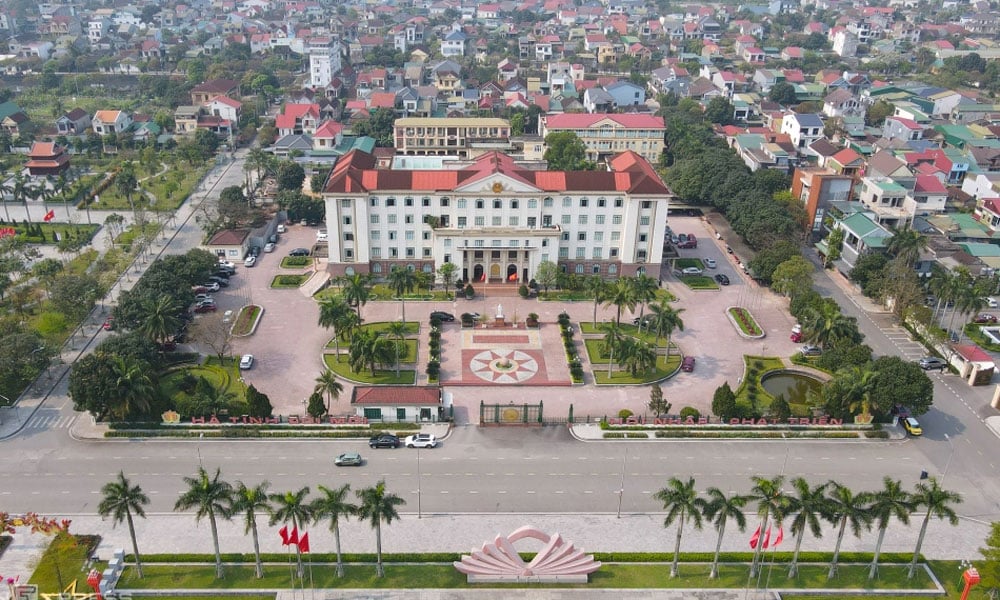According to the draft revised Law on Organization of Local Government, mountainous and highland localities with less than 500,000 people are proposed to have 50 provincial People's Council delegates. Provinces with more than 500,000 people will elect one more delegate for every 50,000 people, up to a maximum of 90 people (an increase of 15 delegates compared to the current maximum). Delta provinces with less than one million people are proposed to have 50 delegates; for every 75,000 people, one more delegate will be elected, up to a maximum of 90 people (an increase of 5).
Headquarters of Ha Tinh Provincial People's Committee, March 2025. |
For centrally-governed cities with less than one million people, the Ministry proposes 70 delegates (an increase of 20). For cities with more than one million people, for every additional 75,000 people, one more delegate will be elected, up to a maximum of 90 people (an increase of 5). Notably, the Ho Chi Minh City People's Council is proposed to increase from 95 to 125 delegates, equal to Hanoi according to the provisions of the Capital Law.
The Ministry of Home Affairs also proposed increasing the number of People's Council delegates at the commune and ward levels. According to the draft, mountainous, highland and delta communes will have 20-40 delegates depending on population size, while wards will have 30-40 People's Council delegates, an increase of up to 10 people compared to the current maximum. Island special zones will have 20-40 delegates corresponding to a population of 5,000-over 20,000 people.
The new point of the draft revised Law on Organization of Local Government is to remove regulations on district-level government because this level is expected to no longer exist after the merger.
According to the draft Resolution of the National Assembly Standing Committee prepared by the Ministry of Home Affairs, 11 provinces and cities are expected to maintain the status quo, including Hanoi, Hue, Lai Chau, Dien Bien, Son La, Cao Bang, Lang Son, Quang Ninh, Thanh Hoa, Nghe An and Ha Tinh. The remaining 52 localities, including the four centrally-run cities of Ho Chi Minh City, Hai Phong, Da Nang and Can Tho, are also subject to rearrangement.
General Secretary To Lam previously said that it is expected that the country will have about 34 provinces and cities after rearranging the current 63 provinces and cities; there will no longer be district level; and the country will have about 5,000 commune-level administrative units.
According to VnExpress
Source: https://baobacgiang.vn/de-xuat-tang-dai-bieu-hdnd-cap-tinh-sau-sap-nhap-postid415366.bbg

































































































Comment (0)